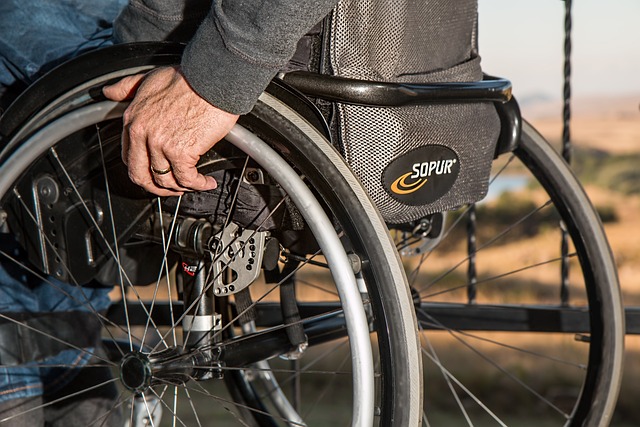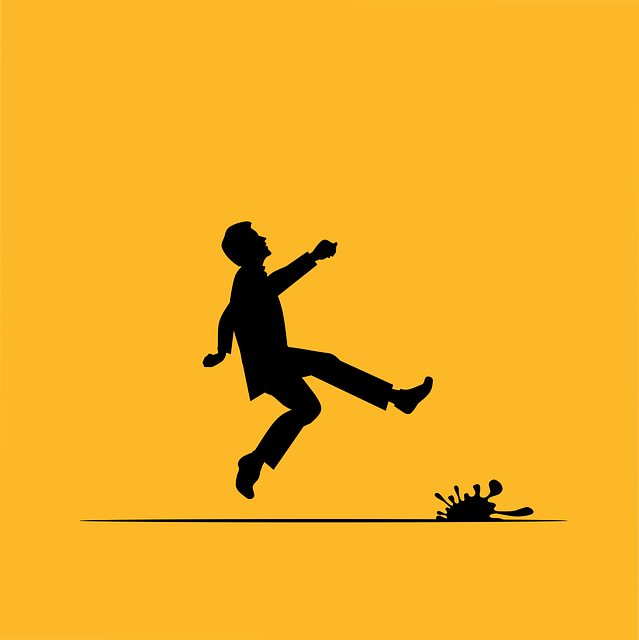Navigating DUI Insurance Claims: NYC Brain Attorneys Guide You Through

In New York City, facing a DUI charge? A brain attorney NYC specializes in defending against these s…….
In the intricate intersection of law and neuroscience, a specialized field has emerged, demanding attention—Brain Attorney New York. This innovative approach to legal practice focuses on navigating the complexities of laws related to the brain, neuroscience, and cognitive health. As our understanding of the human mind deepens, so does the need for attorneys equipped to handle the unique challenges this knowledge presents. This article aims to provide an in-depth exploration of Brain Attorney New York, its role, impact, and future prospects, shedding light on a dynamic sector at the forefront of legal innovation.
Brain Attorney New York, as the term suggests, refers to legal professionals specializing in the intricate web of laws connected to brain-related matters. These attorneys possess expertise in various domains, including neuroscience, psychology, and cognitive science, alongside their legal acumen. Their primary role is to interpret and navigate the legal landscape surrounding advancements in brain research, technologies, and related ethical considerations.
The field encompasses a wide range of issues, from intellectual property rights related to brain-machine interfaces to privacy concerns arising from neuroimaging technology. Brain attorneys advise clients on consent forms for clinical trials involving neural stimulation, draft policies for organizations aiming to protect employee cognitive health, and offer guidance on the legal implications of emerging neuroscience treatments.
Historically, the concept emerged as a response to the rapid progress in neuroscience and its potential impact on various sectors. As research began to uncover the intricacies of the brain, it became evident that traditional attorneys needed specialized knowledge to address the unique legal challenges that ensued. Thus, brain attorneys fill a critical gap, ensuring that advancements in neuroscience are both ethically sound and legally compliant.
The influence of Brain Attorney New York extends far beyond the borders of New York City. This specialized field has captivated legal professionals and researchers worldwide, leading to its emergence as a global trend. Several key factors drive this international interest:
International Collaboration in Neuroscience: Global collaborations in neuroscience research have increased, fostering an environment where cross-border legal considerations become more prevalent. Projects involving multinational teams require a nuanced understanding of diverse legal systems related to brain research.
Advancements in Neurotechnology: The rapid development of neurotechnologies, such as brain-computer interfaces (BCIs) and advanced neuroimaging techniques, raises complex legal questions. As these technologies find applications in various industries, from healthcare to gaming, the need for specialized legal expertise grows.
Ethical Considerations: Brain research intersects with ethical dilemmas, particularly regarding privacy, consent, and the potential misuse of neural data. International discussions and guidelines on neuroethics have sparked interest in legal professionals who can navigate these delicate issues.
Different regions worldwide are responding to these trends in unique ways:
Europe: The European Union has been proactive in establishing regulatory frameworks for neurotechnologies, ensuring compliance across member states. Brain attorneys in Europe play a crucial role in helping organizations navigate these regulations while maintaining innovation.
Asia: Countries like Japan and South Korea are leading the way in neurotechnology research, prompting the demand for brain attorneys to address both local and international legal complexities.
North America: The United States, with its robust legal system and neuroscience research hubs, provides a fertile ground for brain attorney practice. However, Canada and Mexico also witness growing interest in this field as cross-border collaborations intensify.
The economic implications of Brain Attorney New York are multifaceted, shaping the global legal services landscape. Here’s an analysis of its market dynamics:
Market Size: The global legal services market, valued at over $1.5 trillion in 2022, is expected to grow significantly due to the increasing complexity of brain-related legal issues. As neuroscience advances, so does the potential for litigation, intellectual property disputes, and regulatory challenges.
Investment Patterns: High-net-worth individuals, venture capital firms, and pharmaceutical companies are investing heavily in neurotech startups. Brain attorneys play a crucial role in structuring deals, drafting investment agreements, and ensuring compliance with relevant laws and regulations.
Job Creation: The field creates specialized legal roles, fostering employment opportunities for brain attorneys and support staff. This demand extends to law firms and corporations alike, as organizations recognize the value of such expertise.
Revenue Generation: Brain attorney services command premium rates due to their specialized nature and the high stakes involved in neural law cases. This trend is expected to continue as the field matures, offering attractive revenue streams for legal professionals.
Technological breakthroughs are at the heart of Brain Attorney New York’s evolution, shaping its future trajectory. Several key advancements have a profound impact on this field:
Neuroimaging Techniques: Advanced neuroimaging technologies, such as functional magnetic resonance imaging (fMRI) and diffusion tensor imaging (DTI), provide unprecedented insights into brain function and structure. Brain attorneys must stay abreast of these developments to interpret research findings and their legal implications accurately.
Brain-Computer Interfaces (BCIs): BCI technology enables direct communication between the brain and external devices, with applications in medicine, gaming, and more. As BCIs become more accessible, brain attorneys will be crucial in addressing issues related to user consent, data privacy, and intellectual property rights.
Artificial Intelligence (AI) in Neuroscience: AI algorithms are revolutionizing neuroscience research, from data analysis to personalized treatment recommendations. Legal professionals must understand these technologies to draft informed consent forms, anticipate potential ethical dilemmas, and ensure responsible AI deployment.
Brain Attorney New York’s impact can be seen in various real-world applications:
Clinical Trials: Brain attorneys collaborate with researchers to design consent forms that accurately convey the risks and benefits of clinical trials involving brain stimulation techniques, ensuring informed participant agreement.
Neurotech Startups: They assist neurotech startups in navigating intellectual property protection, regulatory compliance, and investment agreements, enabling these companies to innovate while minimizing legal risks.
Privacy Laws: As neurotechnologies collect sensitive neural data, brain attorneys help organizations develop privacy policies and procedures that adhere to stringent data protection regulations, such as GDPR or California’s CCPA.
The field of Brain Attorney New York is not without its challenges and ethical dilemmas:
Confidentiality and Data Protection: As brain attorneys handle sensitive neural data, ensuring client confidentiality and compliance with data privacy laws is paramount.
Informed Consent: Gaining truly informed consent from individuals participating in neuroscience research or treatments presents unique hurdles due to the complexity of these procedures. Brain attorneys must ensure that participants fully understand the implications of their decisions.
Ethical Use of Neurotechnologies: The potential for misuse of neurotechnologies raises ethical concerns, particularly regarding surveillance and manipulation of brain states. Brain attorneys play a vital role in advocating for responsible use and promoting public awareness.
Building expertise in Brain Attorney New York requires specialized education and training. Law schools worldwide are recognizing the demand for this niche field, incorporating neuroscience-related courses into their curricula. Additionally:
Collaborations with Neuroscience Departments: Law schools partner with universities’ neuroscience programs to offer joint degrees or concentrations, providing students with a solid foundation in both law and neuroscience.
Professional Development Programs: Established brain attorneys participate in workshops, seminars, and continuing legal education (CLE) courses to stay updated on the latest advancements and legal developments in neural law.
Mentorship Programs: Mentoring initiatives pair experienced brain attorneys with aspiring professionals, fostering knowledge transfer and the growth of future experts in this field.
The future of Brain Attorney New York is poised for significant growth and evolution, driven by technological advancements and a growing recognition of the legal complexities in neuroscience. Here’s a glimpse into potential trends:
Specialization Deepens: As the field matures, brain attorneys are expected to develop further specialized knowledge in specific areas, such as neuroethics, intellectual property rights in neurotech, or clinical trials law related to neuroscience.
Global Standardization: With increasing international collaboration, there will be a push for standardized legal frameworks governing neurotechnologies and research practices worldwide, creating opportunities for brain attorneys to shape global policy.
AI Integration: Artificial intelligence will play an increasingly significant role in both legal research and case analysis, allowing brain attorneys to focus more on strategic decision-making and less on tedious tasks.
Client Base Expansion: The demand for brain attorney services is likely to expand beyond traditional pharmaceutical and healthcare organizations to include tech startups, government agencies, and even entertainment companies exploring neurotech applications.
Brain Attorney New York represents a fascinating intersection of law and neuroscience, offering both challenges and immense potential. As our understanding of the brain continues to evolve, so too will the legal landscape it shapes. These specialized attorneys play a pivotal role in ensuring that advancements in neuroscience are not only groundbreaking but also ethically sound and legally compliant. With technological advancements driving innovation, the future of Brain Attorney New York promises exciting developments, shaping the way we navigate the intricate world of neural law.

In New York City, facing a DUI charge? A brain attorney NYC specializes in defending against these s…….

Whiplash injuries from car accidents in New York can lead to chronic health issues. A specialized br…….

In Brooklyn, bus accident victims require specialized legal support from a brain attorney New York d…….

Taxi cab accidents in New York City, especially in dense Queens, present significant legal challenge…….

In New York City, especially Queens, navigating taxi cab accident law is crucial for victims and bra…….

Construction site accidents in The Bronx pose significant risks, leading to severe injuries or fatal…….

In New York, product liability laws protect consumers from defective products, holding manufacturers…….

In New York City, motorcycle accidents can lead to severe injuries and complex legal issues, making…….

In bustling New York City, where high population density and busyness make premises liability crucia…….

In New York, especially in Brooklyn, a specialized brain attorney is indispensable for product liabi…….